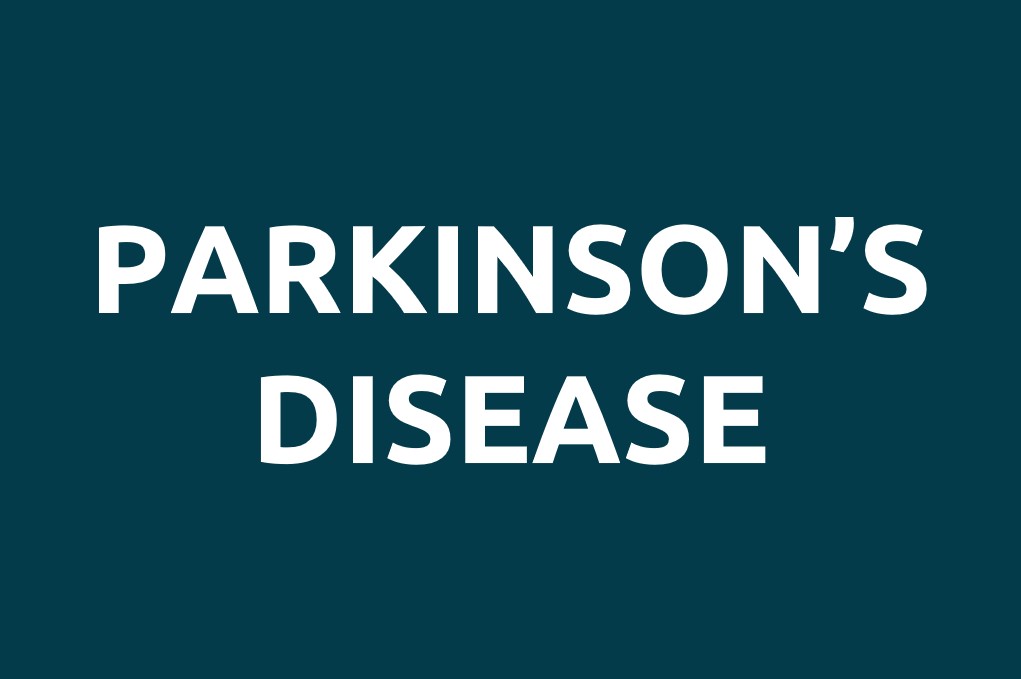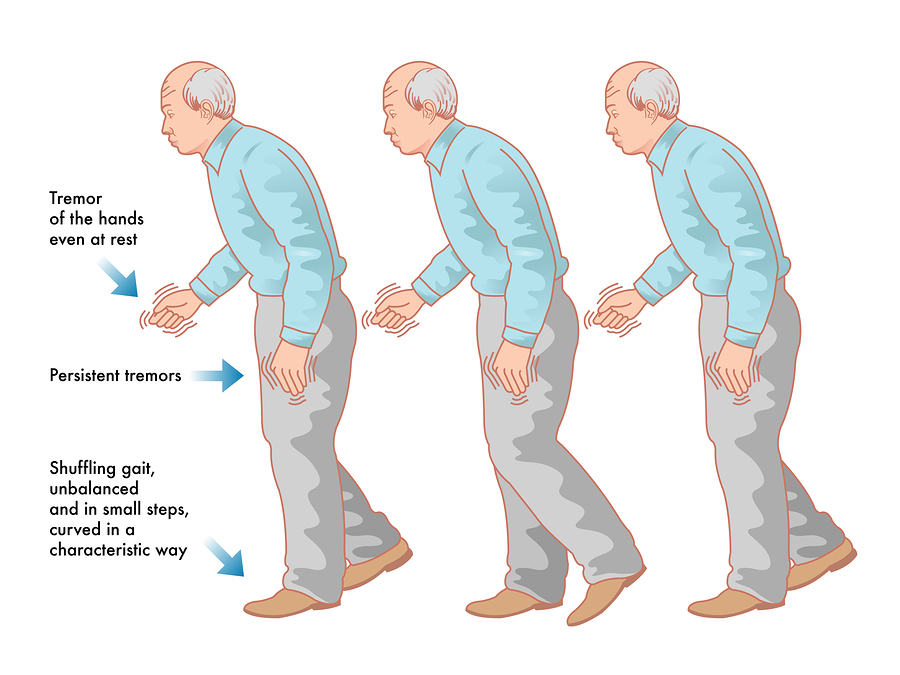

Parkinson's Disease Symptoms and Diagnosis
The brain cells and nerves affected in Parkinson’s disease (PD) normally help to produce smooth, co-ordinate movements of muscles. When this system goes wrong, movement disorders (motor symptoms) occur. Three common PD symptoms that gradually develop are:
- Slowness of movement (bradykinesia). For example, it may become more of an effort to walk or to get up out of a chair. In time, a typical walking pattern often develops. This is a ‘shuffling’ walk with some difficulty in starting, stopping and turning easily.
- Stiffness of muscles (rigidity) and muscles may feel tenser. Also, your arms do not tend to swing as much when you walk.
- Shaking (tremor) is common, but does not always occur. It typically affects the fingers, thumbs, hands and arms but can affect other parts of the body. It is most noticeable when you are resting. It may become worse when you are anxious or emotional. It tends to become less when you use your hand to do something such as picking up an object.
Some other symptoms may develop due to problems with the way affected brain cells and nerves control the muscles. These include:
- Fewer facial expressions such as smiling or frowning. Reduced blinking.
- Difficulty with fine movements such as tying shoe laces or buttoning shirts.
- Difficulty with writing (handwriting tends to become smaller).
- Difficulty with balance and posture and an increased tendency to fall.
- Speech may become slow and monotonous.
- Swallowing may become troublesome and saliva may pool in the mouth.
- Tiredness and aches and pains.
Various other symptoms develop in some cases, mainly as the condition becomes worse. Symptoms include:
- Bladder symptoms and sometimes incontinence.
- Hallucinations – seeing, hearing or smelling things that are not real.
- Sweating.
- Sexual difficulties.
- Alterations in your sense of smell.
- Sleep problems.
- Weight loss.
- Pain.
- Depression.
- Anxiety.
- Dizziness on standing (due to a sudden fall in blood pressure).
- Problems with controlling impulses. For example, compulsive eating, shopping or gambling.
There is no test that can prove that you have PD. The diagnosis is based on you having the typical symptoms (described above). In the early stage of the disease, when symptoms are mild, it may be difficult for a doctor to say if you definitely have PD. As the symptoms gradually become worse, the diagnosis often becomes clearer.
The Parkinson and movement disorders specialist is right person for diagnosing PD and ruling out other causes of the symptoms. If there is still doubt about the diagnosis, sometimes a scan of the brain is carried out. This helps to differentiate PD from some other conditions that can cause Parkinsonism features. Other tests sometimes needed include blood tests and tests of your sense of smell.
What causes Parkinson's disease?
PD is a disorder of the nervous system. A small part of the brain, called the substantia nigra, is mainly affected. This area of the brain sends messages down nerves (via dopamine) in the spinal cord to help control the muscles of the body. If you have PD, a number of cells in the substantia nigra become damaged and die. The exact cause of this is not known. Over time, more and more cells become damaged and die. As cells are damaged, the amount of dopamine that is produced is reduced.
Who develops Parkinson's disease?
PD mainly develops in people over the age of 50. It becomes more common with increasing age. About 5 in 1,000 people in their 60s and about 40 in 1,000 people in their 80s have PD. It affects men and women but is a little more common in men. Rarely, it develops in people under the age of 50.
PD is not usually inherited and it can affect anyone. However, one type of PD, which appears in the small number of people who develop it before the age of 50, may be linked to inherited (genetic) factors. Several family members may be affected.
What are the treatments for Parkinson's disease?
For Parkinson there multiple drugs are available. Judicious use of these medications make a lot difference in patient quality of life. In selected cases DBS – Deep Brain Stimulation is also a good treatment option. All these treatment options help you to be independent and keep going.
